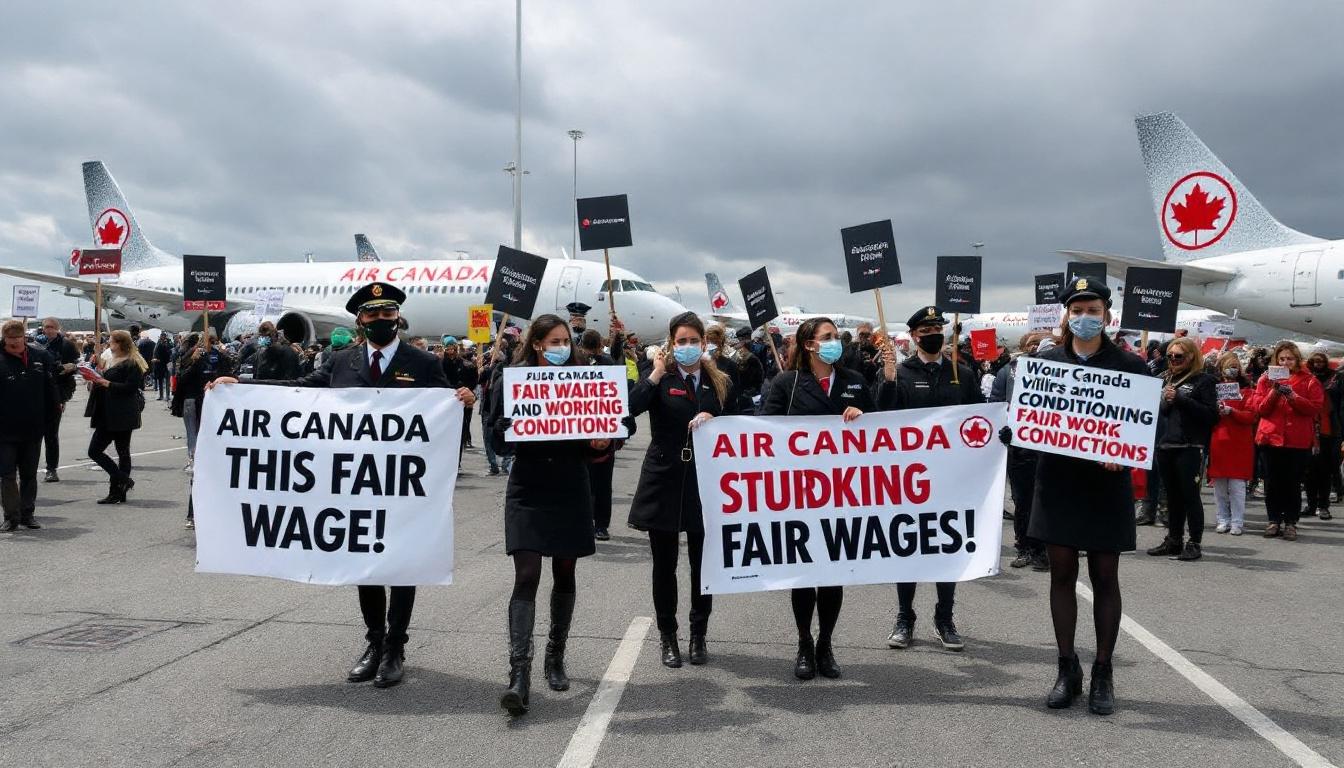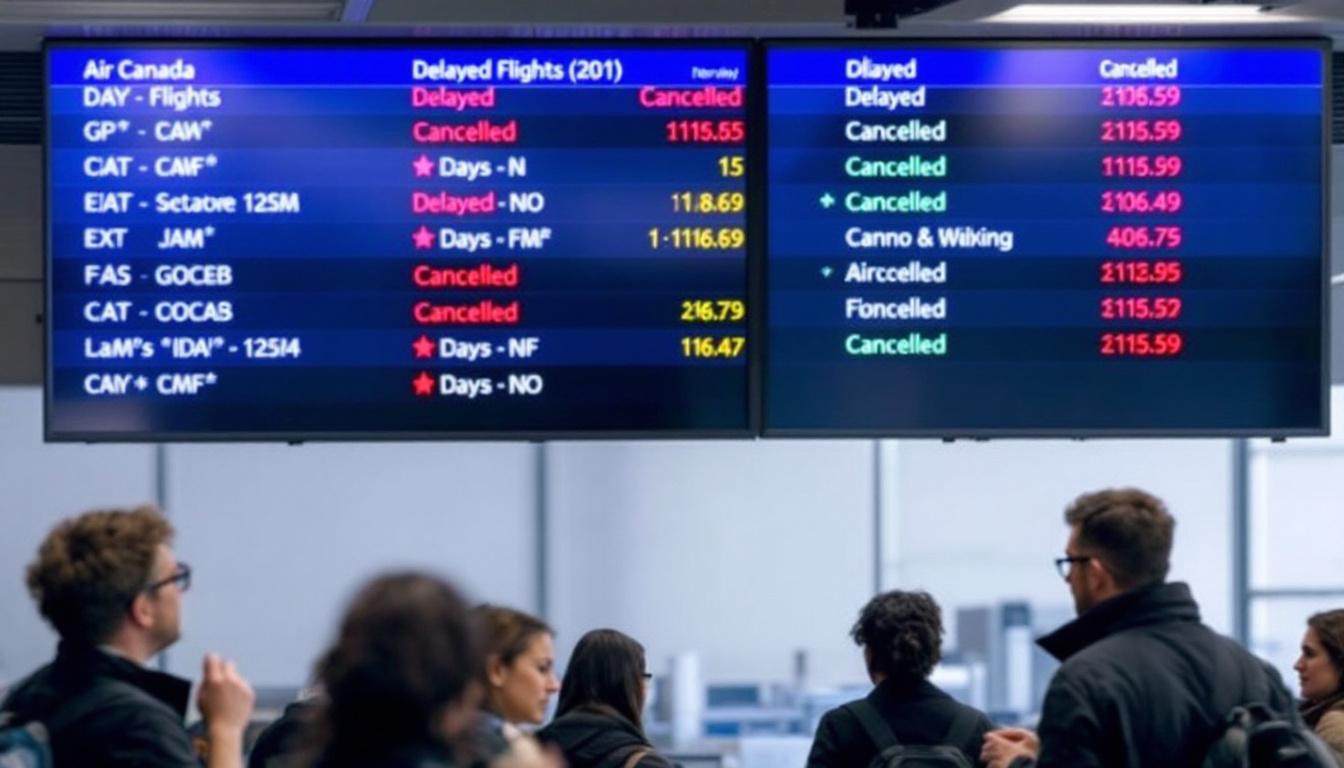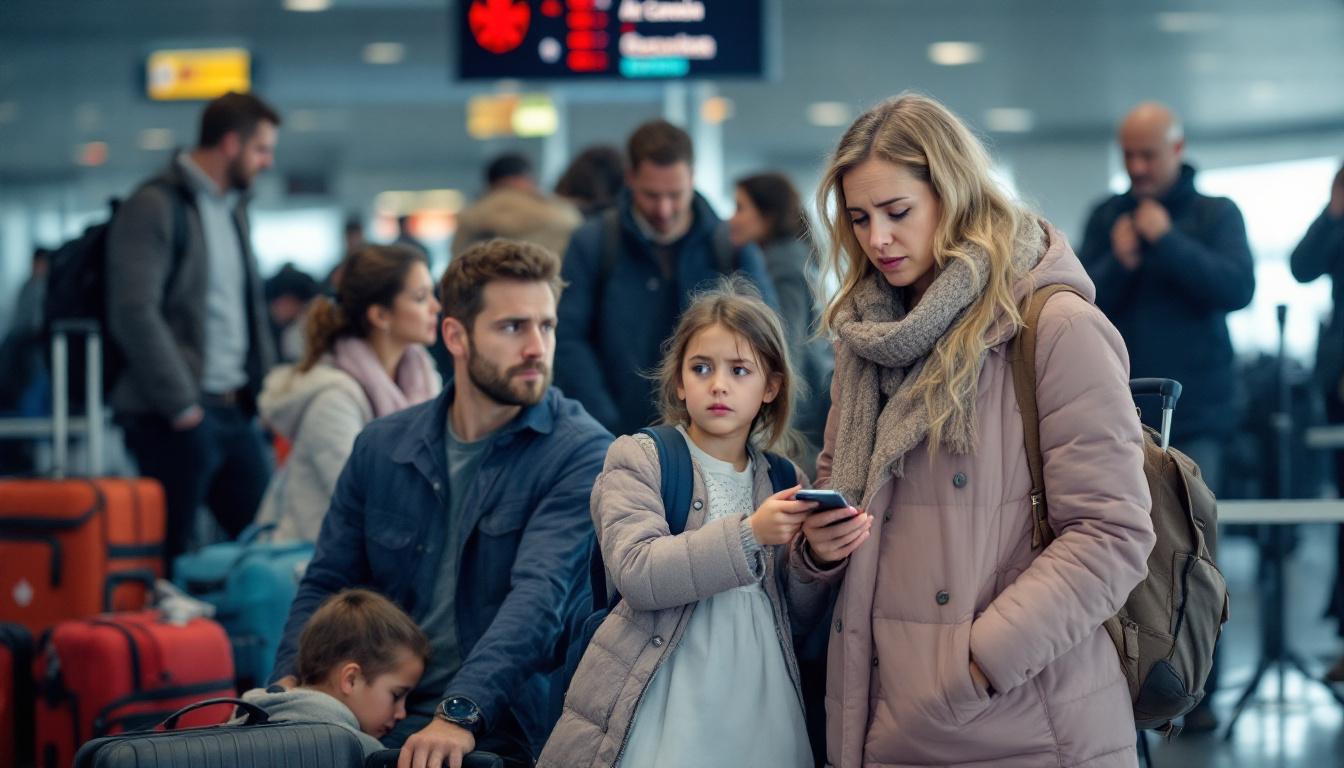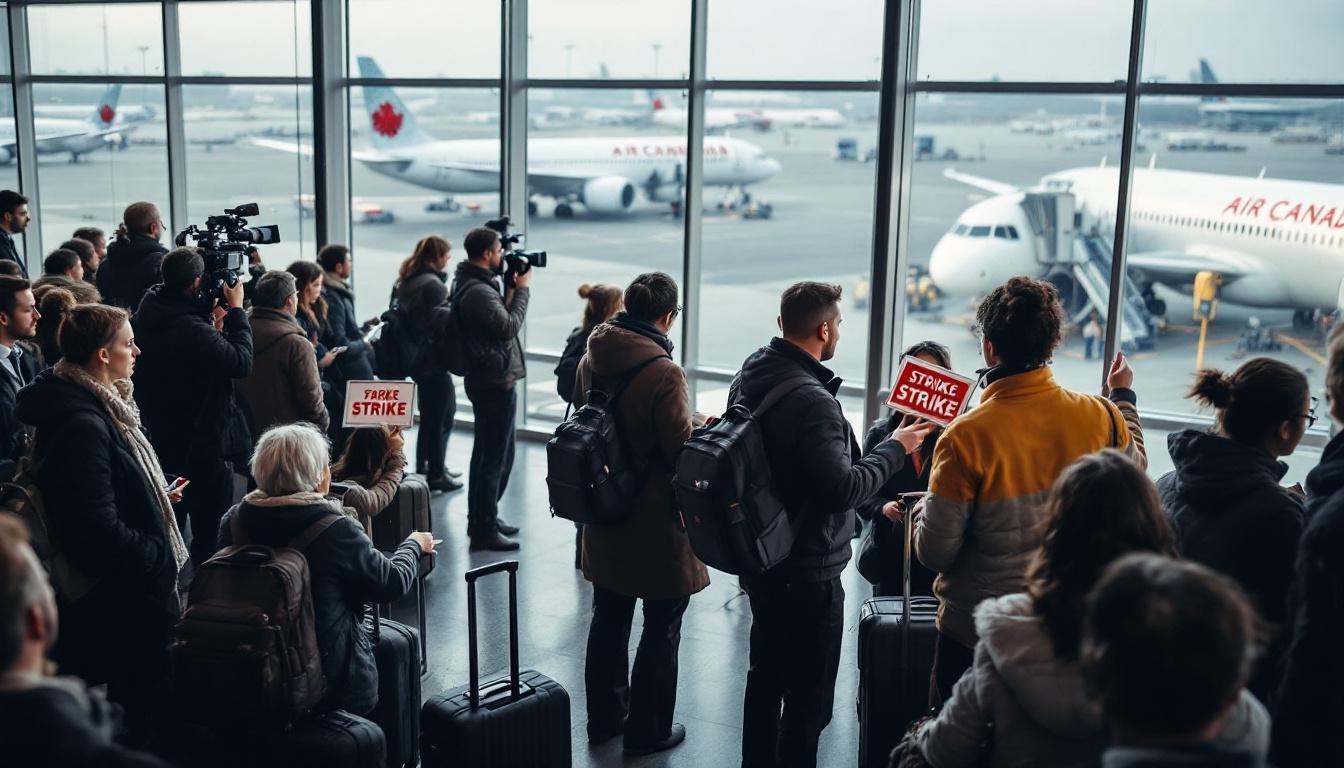Airports across Canada have descended into chaos as an Air Canada strike disrupts hundreds of flights nationwide. The escalating dispute between the airline and its workforce has left thousands of travelers stranded, upending summer holiday plans and raising wider questions about aviation labor relations in the country. Here’s a closer look at what’s behind the strike, how it has affected travelers, and what to expect next.
Understanding the Air Canada Strike
On Monday morning, Air Canada pilots and flight attendants walked off the job, bringing much of the airline’s schedule to a standstill. The walkout comes after months of tense negotiations between union leaders and company management over pay, working conditions, and scheduling practices.
The tipping point appears to have been disagreements over wage increases that keep pace with inflation and demands for better crew scheduling rules. Many Air Canada employees say they are overworked after the pandemic, with schedules that leave little time for rest between long-haul trips.
Union spokesperson Danielle Rivard said, “After years of sacrifice, we’re asking for fair treatment. We kept Air Canada flying through the hard times, now it’s time for the company to respect our work.”

Picket lines grew quickly outside major airports as workers called for fair wages and better working conditions.
How the Strike Is Affecting Travelers
From Vancouver to Montreal, long lines have snaked through Air Canada’s terminals as travelers rushed to rebook canceled flights or claim compensation. Many passengers arrived at the airport only to find their flights listed as delayed, then canceled.

Flight boards at Canadian airports are filled with delays and cancellations as the labor action continues.
For international travelers and families, the strike has caused tremendous stress. Many have reported sleeping overnight in airport terminals while scrambling for hotel vouchers or new flight arrangements. Parents with young children face the extra burden of managing tired, anxious kids in crowded, noisy settings.
One passenger, Julia Koski, was supposed to fly from Toronto to Paris for her sister’s wedding. “I’ve only been able to speak to a representative through the app,” she said. “No one knows when flights will start again, and hotels are full. It’s a nightmare.”
The Broader Impact on Canada’s Travel Industry
The Air Canada strike does not only affect travelers—it ripples through the whole economy. Air Canada is the largest airline in the country, with thousands of workers and direct airline partners dependent on its operations. When the airline is grounded, tourism businesses, airport shops, baggage handlers, and other services all face significant losses.
Canadian airports, already struggling with high summer demand, are now contending with sudden staff shortages as well. Travelers report waiting hours in customer service lines, while social media is full of stories about missed connections and ruined vacations.
What Air Canada Is Saying
Air Canada has encouraged travelers to check their flight status frequently and to avoid coming to the airport unless their flight is confirmed to operate. In its latest statement, the company said, “We are committed to reaching an agreement with our employees and minimizing the impact on our customers. We apologize for the disruption and are working to restore our schedule as soon as possible.”
Still, many feel this is a repeat of past disputes. Labor experts say the airline has faced similar labor tensions before, each time resulting in disruptions for travelers.
What Are Your Rights During an Airline Strike?
Canadian passengers are protected by the Air Passenger Protection Regulations. If your Air Canada flight is canceled or significantly delayed because of a strike, you may be entitled to:
- Compensation for hotel stays if stranded overnight
- Meals or meal vouchers
- Rebooking on the next available flight
- Refunds for canceled flights with no rebooking option
To access these, keep all receipts, communicate through official channels, and document all interactions with airline staff. Be persistent, as call centers and social media channels may be overwhelmed.

Families are among the hardest hit, struggling to find new flights and facing uncertainty about their travel plans.
How Long Will the Strike Last?
So far, negotiations have failed to produce a deal, and union leaders have said the strike will continue “as long as necessary.” Typical labor disputes of this scale can last from several days to a few weeks, depending on pressure from both the government and the public.
The Ministry of Transport has urged both sides to return to the table, emphasizing the importance of keeping Canadians moving. Some experts believe that if talks stall, federal intervention could be possible, as aviation is considered essential infrastructure.
Tips for Travelers Caught in the Strike
- Check Flight Status: Use Air Canada’s app or website for real-time updates.
- Try to Rebook Early: Call or use online tools to secure an alternate route if your flight is canceled.
- Consider Alternate Airports or Carriers: Nearby airports or other airlines may have limited availability.
- Keep Records: Save all receipts for meals, accommodation, and alternate transportation, in case you need to file a claim.
- Remain Patient: Staff on duty are facing enormous pressure; being patient and polite may help your case.
Looking Ahead
The Air Canada strike is a wake-up call for the entire aviation sector. As travelers and workers collide in the middle of peak travel season, the need for fair labor agreements and contingency planning becomes clear. For now, thousands of Canadians can only wait—and hope for a rapid resolution.
Have you experienced travel disruption during the Air Canada strike? Share your story in the comments below.
To contact us Click Here .

